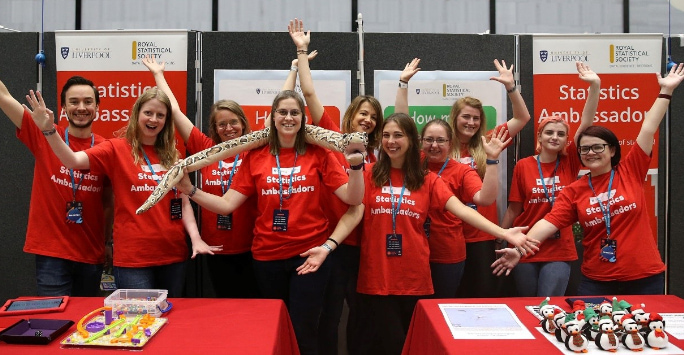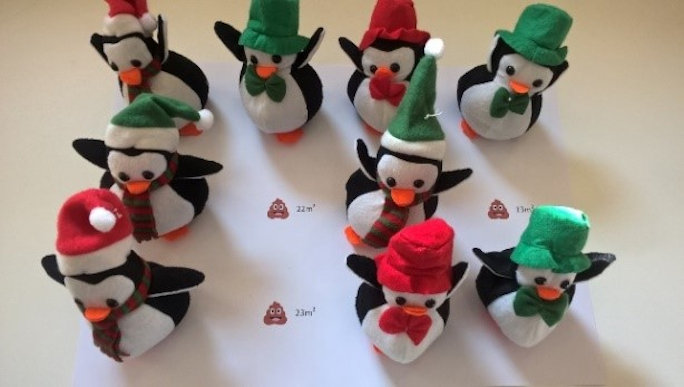
Dr Laura Bonnett is a Senior Lecturer in the Department of Health Data Science. Here she tells us about her role as a STEM Ambassador and efforts to inspire the next generation by making maths exciting.
I was at a local park recently when a teenager said “aren’t you the penguin poo lady”? I wasn’t sure whether to be flattered or mortified that I’d been remember for animal faeces rather than my engaging maths session at the student’s school earlier in the term.
It’s not the first time I’ve been referred to in this way. I’ve been a STEM (Science, Technology, Engineering and Mathematics) Ambassador since 2010. Alongside attending careers fairs, schools’ workshops, and teacher training sessions, I’m part of a team developing hands-on statistics activities for the Royal Statistical Society. These activities are for use by anyone (STEM Ambassadors, statisticians, teachers, parents etc.) at careers fairs, at festivals and in schools. They consist of short, practical activities for face-to-face interactions. Full details can be found at www.rss.org.uk/hands-on.
One of these activities is ‘How Many Penguins’. It introduces people to the concepts of populations and samples. Using information obtained from a sample of ‘local’ (soft toy) penguins, we infer how many penguins live in a colony in Antarctica based on a photograph of penguin poo on the snow. It’s always a hit with both students and staff. Indeed, the activity won the Peter Holmes Prize for best classroom idea published in Teaching Statistics in 2019 and also featured in an Ofsted school inspection report!

Another (in)famous activity is “sociable cards” which uses a mathematical magic trick to demonstrate that statistical thinking can help to identify patterns in situations which may otherwise be considered unpredictable. In particular, people have to walk along giant playing cards according to some basic rules. Even though everyone starts on a different card, they all end up on the same end card – a demonstration of how we can encrypt data to send it to an alternative location but still make sense of it upon arrival.
As mathematicians and statisticians, and indeed as academics, I believe we have a duty to inspire the next generation about the joy of our subject. Along the way I’ve counted penguins with hundreds of Beaver and Cub Scouts to help them earn their ‘Night at a Museum’ badge. I’ve seen grown-ups snaking their way around a path of playing cards at Pint of Science. I’ve also howled with laughter watching a church group attempt to inflate balloons to a particular size during a demonstration of a clinical trial.
I’ve always appreciated how important maths and numerical literacy are as core skills. However, I know that many people struggle with numbers – phrases such as “I hate maths” or “I can’t do maths” are all too frequent. The hands-on activities I’ve co-developed, and the events I’ve attended are only a drop in an ocean. But, I believe, that they are the right drop in the right ocean. So, if by being referred to as the “penguin poo lady”, I’ve helped one student to understand the concept of a mean, or inspired one person to study maths or earth sciences at university then I shall wear my title with pride!